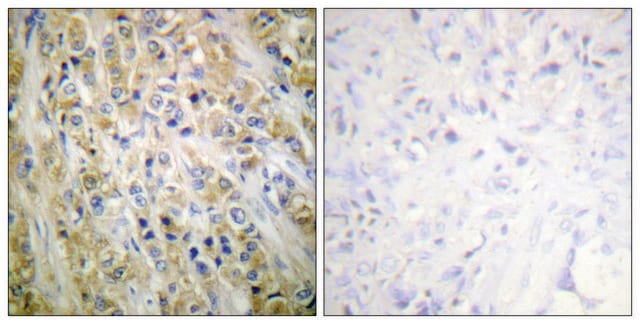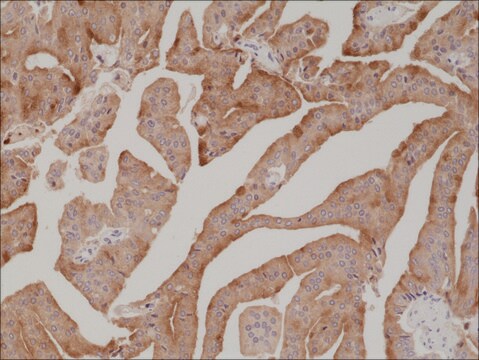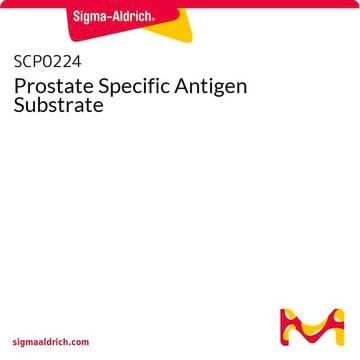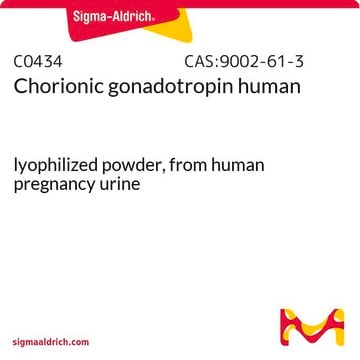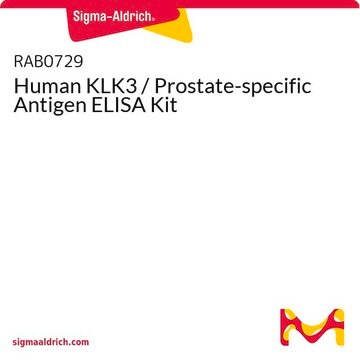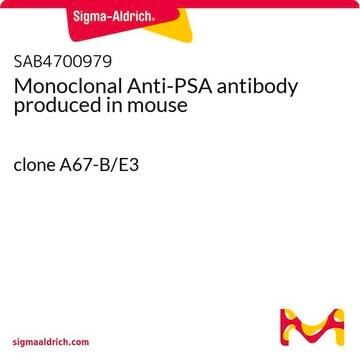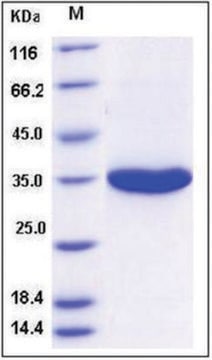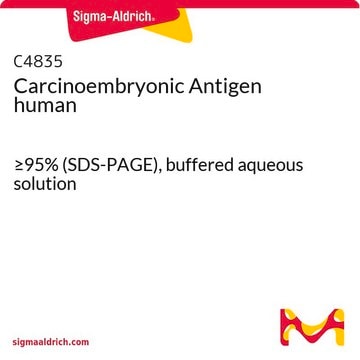P3338
Prostate Specific Antigen from human semen
buffered aqueous solution
Synonym(s):
Cancer-associated PSA, PSA
Sign Into View Organizational & Contract Pricing
All Photos(1)
About This Item
Recommended Products
Looking for similar products? Visit Product Comparison Guide
General description
Prostate specific antigen (PSA) is a 28.43 kDa single-chain glycoprotein containing 237 amino acids, encoded by the kallikrein gene mapped to human chromosome 19. It is specifically expressed by human prostate tissue and is one of the highly abundant proteolytic enzyme expressed in the seminal fluid.
Application
Prostate Specific Antigen from human semen has been used:
- in microarray sandwich assay
- in the preparation of sandwich immunosensor
- as a target protein to test composite organic−inorganic nanoparticle (COIN) and Alexa conjugates in a plate-binding assay
Biochem/physiol Actions
Prostate Specific Antigen (PSA), a glycoprotein of the glandular kallikrein family, is a serine protease with chymotrypsin-like enzymatic activity. Circulating PSA exists in free and protease inhibitor-bound forms. Studying the ratios of free to inhibitor-bound forms may prove valuable in the diagnosis of prostate cancer.
Prostate-specific antigen (PSA) is an androgen-regulated serine protease specifically produced by prostatic tissue and is secreted into the lumen. PSA in semen cleaves semenogelins present in the seminal coagulum. Total PSA levels are increased in serum of prostate cancer (PCa) patients. PSA functions as a potential biomarker for PCa. Serum protease inhibitors such as α1-antichymotrypsin (α1-ACT), α2-macroglobulin (α2-M), and other acute-phase proteins form irreversible complexes with circulating PSA and hinder proteolytic activity of PSA.
Packaging
Package size based on protein content
Quality
Highly purified
Physical form
Solution in phosphate buffered saline, contains 0.05-0.1% sodium azide with 50% glycerol
Storage Class Code
12 - Non Combustible Liquids
WGK
WGK 2
Flash Point(F)
Not applicable
Flash Point(C)
Not applicable
Certificates of Analysis (COA)
Search for Certificates of Analysis (COA) by entering the products Lot/Batch Number. Lot and Batch Numbers can be found on a product’s label following the words ‘Lot’ or ‘Batch’.
Already Own This Product?
Find documentation for the products that you have recently purchased in the Document Library.
Customers Also Viewed
Chun-Jen Hsiao et al.
Disease markers, 2016, 8915809-8915809 (2016-04-12)
Glycans of prostate-specific antigen (PSA) in prostate cancer were found to be different from that in benign disease. It is difficult to analyze heterogeneous PSA glycoforms in each individual specimen because of low protein abundance and the limitation of detection
Agnieszka Stolarczyk et al.
Sensors (Basel, Switzerland), 22(4) (2022-02-27)
The detection of chemicals is a fundamental issue of modern civilisation, however existing methods do not always achieve the desired sensitivity. Preconcentrators, which are devices that allow increasing the concentration of the intended analyte via e.g., adsorption/desorption, are one of
Usefulness of total PSA value in prostate diseases diagnosis
Prcic A, et al.
Acta Informatica Medica, 24(3), 156-156 (2016)
Pt nanoparticle label-mediated deposition of Pt catalyst for ultrasensitive electrochemical immunosensors
Zhang J, et al.
Biosensors And Bioelectronics, 26(2), 418-423 (2010)
Microarray-based multiplexed scanometric immunoassay for protein cancer markers using gold nanoparticle probes.
Kim D
Analytical Chemistry, 81(21), 183-187 (2009)
Our team of scientists has experience in all areas of research including Life Science, Material Science, Chemical Synthesis, Chromatography, Analytical and many others.
Contact Technical Service
